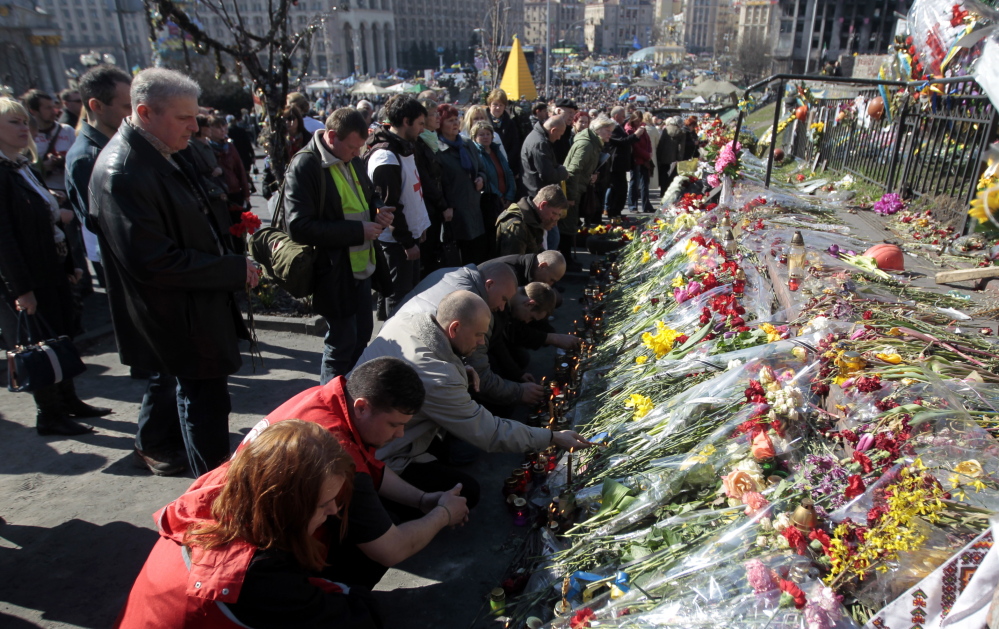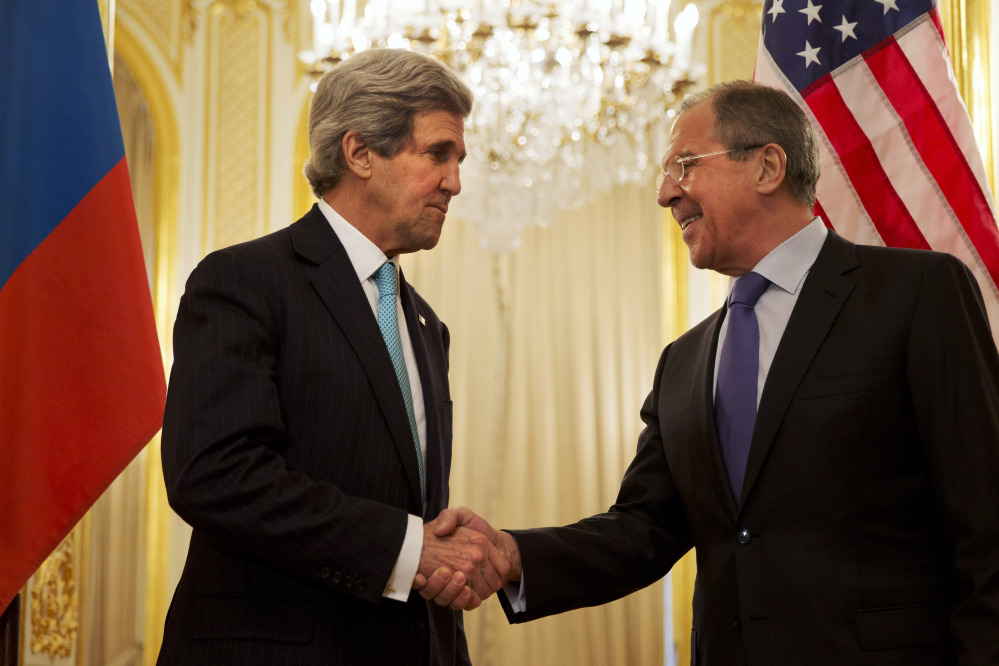PARIS — The United States and Russia agreed Sunday that the crisis in Ukraine requires a diplomatic resolution, but four hours of talks between Secretary of State John Kerry and Russian Foreign Minister Sergey Lavrov failed to break a tense East-West deadlock over how to proceed.
Kerry and Lavrov advanced far different proposals on how to calm tensions and de-escalate the situation, particularly as Russia continues to mass troops along its border with the former Soviet republic.
As he called for Moscow to begin an immediate pullback of the troops, Kerry also ruled out discussion of Russia’s demand for Ukraine to become a loose federation until and unless Ukrainians are at the table.
“The Russian troop buildup is creating a climate of fear and intimidation in Ukraine,” Kerry told reporters afterward. “It certainly does not create the climate that we need for dialogue.”
The United States believes the massing of tens of thousands of Russian soldiers, ostensibly for military exercises, along the border is at once an attempt to intimidate Ukraine’s new leaders after Russia’s annexation of the strategic Crimean peninsula and to use as a bargaining chip with the United States and the European Union, which have condemned Crimea’s absorption into Russia and imposed sanctions on senior Russian officials.
Kerry noted that even if the troops remain on Russian soil and do not enter Ukraine, they create a negative atmosphere.
“The question is not one of right or legality,” he said. “The question is one of strategic appropriateness and whether it’s smart at this moment of time to have troops massed on the border.”
U.S. officials said Kerry proposed a number of ideas on troop withdrawals and that Lavrov, while making no promises, told him he would present the proposals to the Kremlin.
At a separate news conference, Lavrov did not address the troop issue. Instead, he made the case for Moscow’s idea of Ukraine as a federalized nation with its various regions enjoying major autonomy from the government in Kiev. Russia says it is particularly concerned about the treatment of ethnic Russians and Russian speakers who live in southern and eastern Ukraine.
Lavrov said that Ukraine can’t function as a “unified state” and should be a loose federation of regions that are each allowed to choose their own economic, financial, social, linguistic and religious models.
He said every time Ukraine has elected a new president, the country has adopted a new constitution, proving that “the model of a unified state doesn’t work.”
Ukrainian officials are wary of decentralizing power, fearing that pro-Russia regions would hamper its Western aspirations and potentially split the country apart. However, they are exploring political reforms that could grant more authority to local governments.
The United States has been coy about its position on a federation. Washington has encouraged political and constitutional reform efforts that the government in Kiev is now working on, but U.S. officials insist that any changes to Ukraine’s governing structure must be acceptable to the Ukrainians.
Send questions/comments to the editors.




Success. Please wait for the page to reload. If the page does not reload within 5 seconds, please refresh the page.
Enter your email and password to access comments.
Hi, to comment on stories you must . This profile is in addition to your subscription and website login.
Already have a commenting profile? .
Invalid username/password.
Please check your email to confirm and complete your registration.
Only subscribers are eligible to post comments. Please subscribe or login first for digital access. Here’s why.
Use the form below to reset your password. When you've submitted your account email, we will send an email with a reset code.